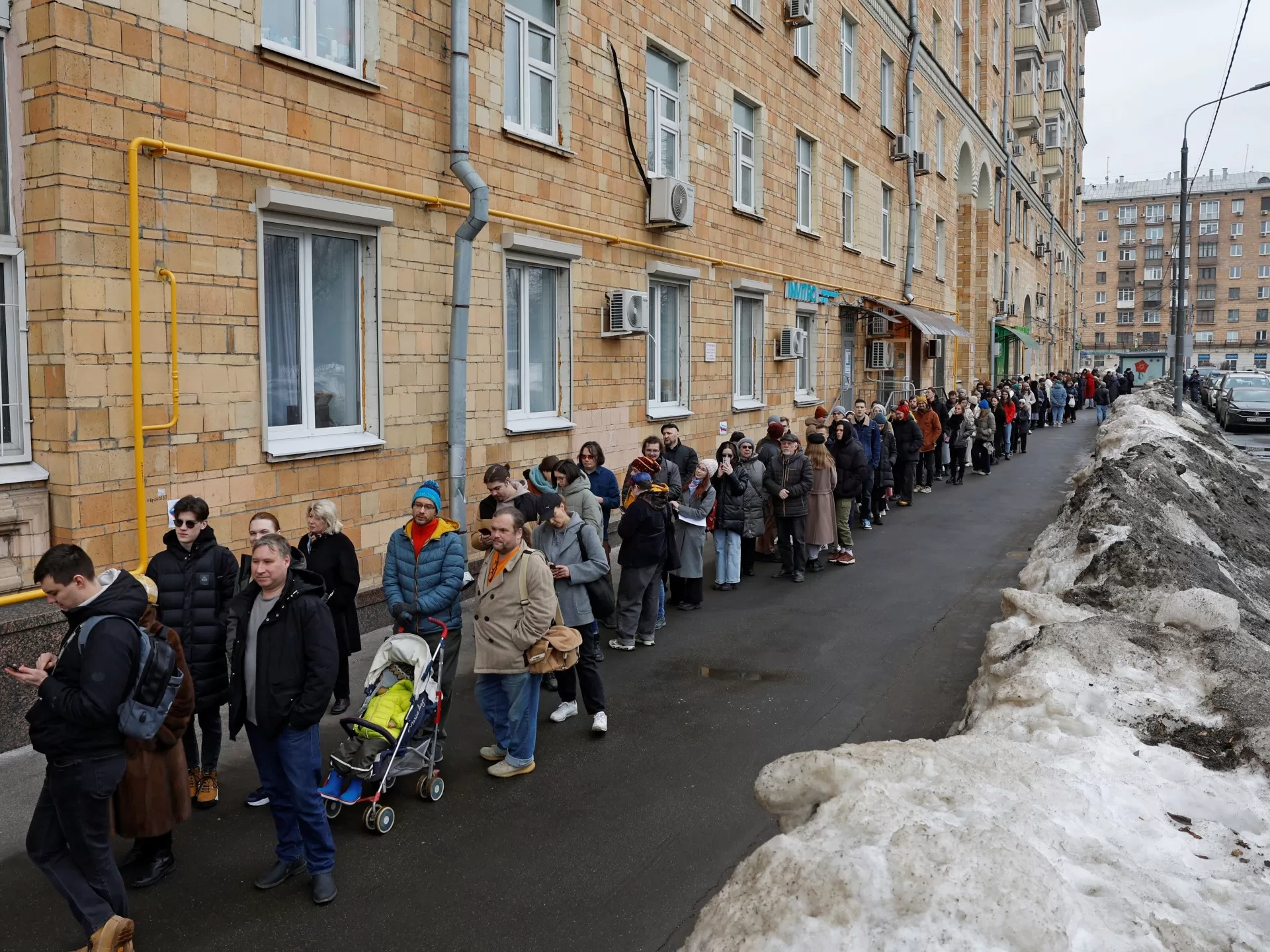Russian President Vladimir Putin is poised to tighten his grip on power in an election that is certain to deliver him a landslide victory, though thousands of opponents have staged a symbolic noon protest at polling stations.
Supporters of Putin’s fiercest political foe Alexey Navalny, who died in an Arctic prison last month, had called on Russians to come out for a “Noon against Putin” protest to show their dissent against a leader they cast as a corrupt autocrat.
Navalny’s associates, including his widow Yulia Navalnaya, have urged those unhappy with Putin, 71, or the ongoing war with Ukraine to protest by coming to the polls at noon on Sunday, a strategy endorsed by Navalny shortly before his death.
Team Navalny described it as a success, releasing pictures and videos of people crowding near polling stations in cities across Russia around noon.
At a polling station in southwest Moscow, Leonid, an 18-year-old student, said there were “not that many people” taking part in the protest but he was “just happy that some people came”.
The polling station was in a school where Navalny scored his highest result – 70 percent – in his failed bid to become Moscow mayor in 2013. He later attempted to run against Putin in the 2018 presidential election but his candidacy was rejected.
After casting his ballot at a polling station where Navalny used to vote, IT worker Alexander said he came because this was one of the few ways he could protest.
“If I hadn’t done this, I would have felt like a coward,” the 29-year-old said.
Elena, 52, said people were “too afraid” to come out in large numbers. “I don’t want Russia, my homeland, to be like this … I love my country; I want it to be free.”
Putin, who rose to power in 1999, is set to win a new six-year term that would enable him to overtake Josef Stalin and become Russia’s longest-serving leader for more than 200 years.
While Putin’s re-election is not in doubt given his control over Russia and the absence of any real challengers, the former KGB spy wants to show that he has the overwhelming support of Russians.
Several hours before polls were due to close at 18:00 GMT, the nationwide turnout surpassed 2018 levels of 67.5 percent.
